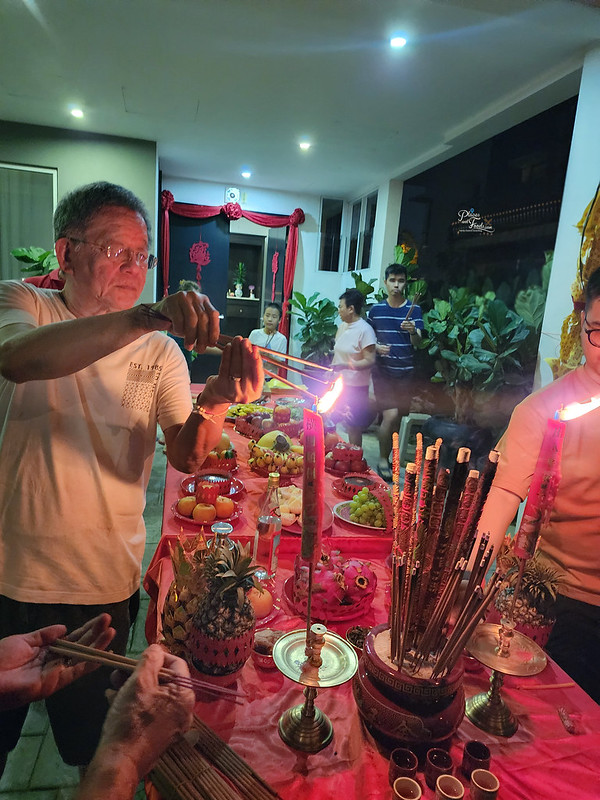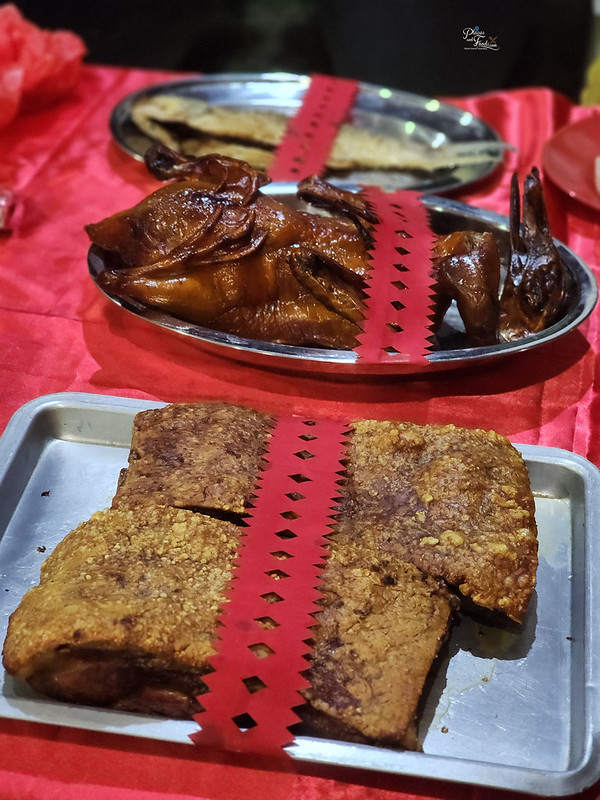The Celebration of Hokkien New Year with Sugarcanes and Fireworks
The Celebration of Hokkien New Year with Sugarcanes and Fireworks
After decades of celebrating Hokkien New Year, time to share the story about it. While the red lanterns of Chinese New Year may have dimmed, the festivities are far from over for the Hokkien community. On the ninth day of the Chinese New Year, a new wave of celebration washes over homes and temples, marking Hokkien New Year, or Bai Ti Gong. But this isn’t just another round of feasting and firecrackers; it’s a story etched in history, steeped in tradition, and bursting with unique flavors.
There are many stories about the origin of Hokkien New Year and the significant importance of the sugarcanes and fireworks. The following is the simplified story of the celebration of Hokkien New Year with sugarcanes and fireworks as there are a few versions of it.
Beyond the Red: A Tale of Resilience and Gratitude
Legend whispers of a time when Hokkien villagers, facing persecution, found refuge in sugarcane fields. There are a few version stories of this but all stories point to Hokkien villagers finding refuge in sugarcane fields.
Emerging on the ninth day, safe and sound, they attributed their salvation to the Jade Emperor, the benevolent ruler of heaven. This tale forms the bedrock of Hokkien New Year, where gratitude takes center stage.
This has become a norm for most Hokkien clan around the world (especially in Asia) to celebrate this auspicious date.
Unveiling the Feast: From Sugarcane Stalks to Sweet Treats
Unlike its counterpart, Hokkien New Year focuses less on family reunions and more on a collective expression of thanks. Elaborate altars adorned with tall sugarcane stalks, symbolizing resilience and unity, become the focal point.
Offerings of fruits, ang ku (red tortoise cakes), and huat kuih (prosperity cakes) tantalize the senses with their vibrant colors and sweet flavors.
For business owners, the more food you offer for the Jade Emperor, you will have better ‘wealth’ for the entire whole year. That is the reason why you see many people offer at least one roast pig for Hokkien New Year. This year, my brother bought a suckling pig instead but we enjoyed it.
From Sunset to Sunrise: A Night of Light and Hope
As the sun dips below the horizon, the air crackles with anticipation. The night comes alive with a spectacular display of fireworks, chasing away evil spirits and ushering in good fortune.
This is the reason why you can see many fireworks on the ninth day of Chinese New Year. While majority of the fireworks are by Hokkien community, it is believed other Chinese clans starting to celebrate due to believe, it helps for business owners.
At the stroke of midnight, gold paper offerings ascend skyward, carrying whispered wishes and heartfelt gratitude to the heavens.
Beyond the Celebrations: Embracing the Spirit
Hokkien New Year is more than just a cultural kaleidoscope; it’s a reminder of the power of community, tradition, and unwavering spirit. It’s a testament to how hope and gratitude, even in the face of adversity, can pave the way for a brighter future.
Remember, the spirit of Hokkien New Year resonates far beyond the ninth day. Let its message of gratitude, resilience, and community color your own journey, making it as sweet and prosperous as the sugarcane stalks that stand tall at its heart.
The Celebration of Hokkien New Year with sugarcanes and fireworks have become a tradition for centuries and it is an opportunity for family and friends get together on this day. We wish everyone a wealthy and healthy year!
For advertisements, please contact us at placesandfoods@gmail.com













